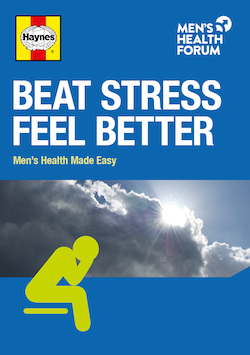Suicidal Men DO seek help
A new study of suicide in middle-age men challenges the old adage that men don’t seek help and emphasises the need for frontline services to genuinely work together to reduce suicide.
The latest report from the National Confidential Inquiry into Suicide and Safety in Mental Health 'Suicide By Middle Aged Men' examined suicides among men aged 40-54 in 2017. (There were 1,516 of these from which a random sample of approximately 20% - 288 individuals - was chosen for in-depth investigation.)
Nearly all of the men who took their own lives (91%) had been in contact with at least one frontline service or agency. Two thirds (67%) had been in touch in the three months before their deaths. Usually contact was with their GP or other primary care services (82%). But half had been in contact with mental health services and nearly a third (30%) in contact with the justice system.
Although each suicide is unique, the report gives some insight in the sorts of factors often involved.
Economic problems
Over half (57%) were experiencing economic problems: 30% were unemployed, and a fifth (21%) were divorced or separated. Over a third (36%) had a problem with alcohol, 31% with illicit drugs.
Physical health
Over half (52%) had a pre-existing physical health condition, most commonly heart problems such as high blood pressure, respiratory problems such as asthma, digestive problems such as cirrhosis of the liver and chronic pain.
Nearly half (44%) had previously self-harmed and over a third (34%) appeared to have been affected by bereavement. One in seven (15%) had used the internet in ways that were suicide-related, often searching for information about methods
Work together
Despite the high levels of contact with frontline service, very little of this contact was with psychological services - only 5% of the men were engaged with talking therapies. This being so other services need to step up.
‘There is a vital role in prevention particularly for primary care, A&E, the justice system, and mental health services,’ the report concludes. ‘We should focus on how these services can improve the recognition of risk and respond to men’s needs, and how services might work better together.’
|
The Men’s Health Forum need your support It’s tough for men to ask for help but if you don’t ask when you need it, things generally only get worse. So we’re asking. In the UK, one man in five dies before the age of 65. If we had health policies and services that better reflected the needs of the whole population, it might not be like that. But it is. Policies and services and indeed men have been like this for a long time and they don’t change overnight just because we want them to. It’s true that the UK’s men don’t have it bad compared to some other groups. We’re not asking you to ‘feel sorry’ for men or put them first. We’re talking here about something more complicated, something that falls outside the traditional charity fund-raising model of ‘doing something for those less fortunate than ourselves’. That model raises money but it seldom changes much. We’re talking about changing the way we look at the world. There is nothing inevitable about premature male death. Services accessible to all, a population better informed. These would benefit everyone - rich and poor, young and old, male and female - and that’s what we’re campaigning for. We’re not asking you to look at images of pity, we’re just asking you to look around at the society you live in, at the men you know and at the families with sons, fathers and grandads missing. Here’s our fund-raising page - please chip in if you can. |

